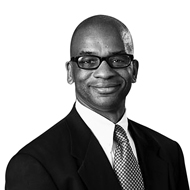Why Financial Planners Have Such a Hard Time Explaining What They Do

We financial planners have all been there. At some point in a conversation — it could be at a cocktail party, a networking event, or an airport terminal — someone asks you, “So what do you do?”
You share your well-crafted 30-second infomercial explaining what you are and what you do. It's just vague enough so that it elicits a follow-up question from the other person about your work. But when you say, “I’m a CFP — a certified financial planner," chances are you get a puzzled look. Saying "CFP" doesn't clear things up; it makes people more confused.
Other professionals, such as CPAs, attorneys, and even DJs, can simply state their profession. Period. The people they're with then assume they're qualified to address any topic related to law, taxes, or music.
It would be great if the CFP mark inspired such instant faith in our expertise, but it doesn't. And why? Part of the problem, I think, is that we ourselves are creating confusion.
While some of us might hold the CFP mark, we also call ourselves "financial advisers," "wealth managers," "investment managers," "certified retirement specialists," or maybe even "college specialists." The list goes on and on. End result: Confusion.
From a marketing position, it might be considered brilliant to keep what we do sufficiently vague in order to elicit more interest. Once someone expresses interest in gaining a better understanding of our work, we can dive right into determining if the person’s needs are in line with what we have to offer.
But that strategy, I believe, does very little to build the profession. In most people's minds, a profession’s title should clearly convey exactly what the person does, even if that professional has a specific area of expertise. As a practicing CFP professional, I often inform individuals that I am a "CFP" followed by "certified financial planning professional," followed by my area of expertise. By the time I’m at 32 seconds, the person receiving my infomercial is still asking, “So what is it you actually do?” Clearly I need to work on my 30-second delivery.
But if I were to start by informing individuals that as a CFP, I help people organize their finances by following a six-step process, which involves first establishing their goals and the scope of our engagement; next gathering all of their financial documents...well, you get the point: The cocktail party would be over before I could even get around to talking about my obligation to act in clients' best interest.
Without a doubt it will be a challenge to educate the public on what we as CFP professionals do, and to be consistent enough that people have a greater understanding of the profession. This will happen, but it will take a lot longer than a 30-second infomercial.
------------------------------
Frank Paré is a certified financial planner in private practice in Oakland, California. He and his firm, PF Wealth Management Group, specialize in serving professional women in transition. Frank is currently on the board of the Financial Planning Association and was a recipient of the FPA’s 2011 Heart of Financial Planning award.
